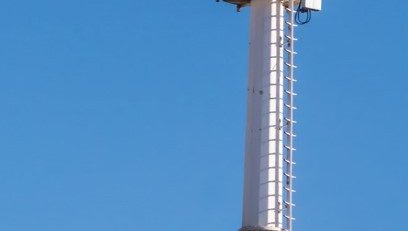CEO’s monthly update – Cabinets, elephants and a battle-ready Commissioner
 First up, March saw the some lengthy debates in the House of Lords on the Growth and Infrastructure Bill regarding relaxed regulations for the siting of broadband cabinets and poles. We were pleased to see the Government’s amendments adopted which removed potential problems of contention that new precedents would be set with ramifications to AONBs and national parks (we issued a response to the DCMS consultation on this last month).
First up, March saw the some lengthy debates in the House of Lords on the Growth and Infrastructure Bill regarding relaxed regulations for the siting of broadband cabinets and poles. We were pleased to see the Government’s amendments adopted which removed potential problems of contention that new precedents would be set with ramifications to AONBs and national parks (we issued a response to the DCMS consultation on this last month).
The Lords Communications Select Committee published the final report as the culmination of its extensive enquiry into media convergence, with Chair of the Committee Lord Inglewood, commenting that “the elephant in the room has been the impact of technological change – the Internet???. We posted a round up of the recommendations in the report, but the headline recommendation was the establishing of a new co-regulatory content standards framework to support a common framework for TV and TV-like content, with the aim of incorporating non-PSB broadcasters and moving them from a licence based to a notification based system. We’ll be keeping an eye on this evolving debate, and look forward to the Government’s response in due course.
March also had Commissioner Neelie Kroes make a visit to Westminster, meeting with Culture Secretary Maria Miller and appearing at an event saying that she was still in the fighting mood to deliver on the vision of Europe’s Digital Agenda. Indeed, a handful of days later we saw a new raft of regulations proposed by the European Commission. Our initial view: the proposals are well intended, but could result in additional burdens for those national plans that are well evolved, ultimately creating additional obstacles for a competitive marketplace. With the forthcoming EC green paper on media convergence looming, the European voice could well turn up the volume in the next few months.
There were two reports out last month which are well worth a look. Firstly, the NAO published a report arguing that there is scope for greater use of online public services but there are still significant numbers of people who cannot go online or do not wish to do so. Secondly, we saw Ofcom’s bi-annual report into UK fixed line broadband performance, with a good deal of coverage of the UK download average reaching 12 Mbps. One might have expected the Chancellor’s Budget 2013 to feature digital infrastructure more prominently but, as we commented, there was next to no mention of broadband.
Next month I’ll be speaking at the Institution of Engineering and Technology on the coverage versus quality debate in what should be a great event. Do come and say hello!

